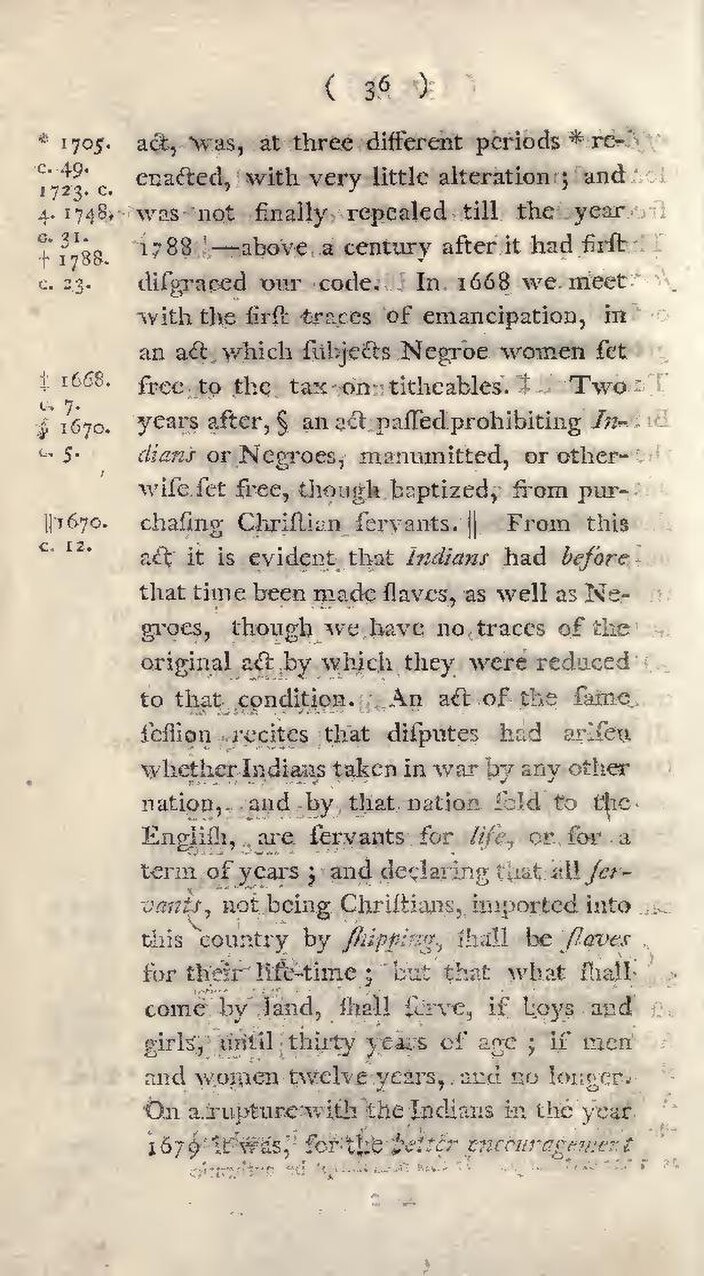( 36 )
act, was, at three different periods** 1705. c. 49. 1723. c. 4. 1748. c. 31. re-enacted, with very little alteration; and was not finally repealed till the year 1788†† 1788. c. 23.—above a century after it had first disgraced our code. In 1668 we meet with the first traces of emancipation, in an act, which subjects Negroe women set free to the tax on titheables.‡‡ 1668. c. 7. Two years after,§§ 1670. c. 5. an act passed prohibiting Indians or Negroes, manumitted, or otherwise set free, though baptized, from purchasing Christian servants.|||| 1670. c. 12. From this act it is evident that Indians had before that time been made slaves, as well as Negroes, though we have no traces of the original act by which they were reduced to that condition. An act of the same session recites that disputes had arisen whether Indians taken in war by any other nation, and by that nation sold to the English, are servants for life, or for a term of years; and declaring that all servants, not being Christians, imported into this country by shipping, shall be slaves for their life-time; but that what shall come by land, shall serve, is boys and girls, until thirty years of age; if men and women twelve years, and no longer. On a rupture with the Indians in the year 1679 it was, for the better encouragement
